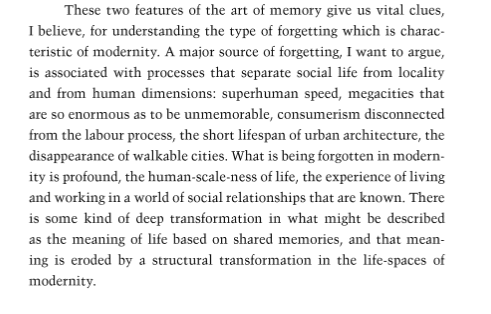Family, Memory, Power

This decade we just left was a revolutionary one for the LGBT movement, both in law and in culture — and, unavoidably, for the rest of us. In a short USA Today piece, Prof. Robert George and Ryan T. Anderson discuss the decade of loss for traditional family advocates, and implicitly forecast what’s ahead. George and Anderson observe that when the decade began, President Obama was still publicly insisting that he did not support same-sex marriage. Then he Grew In Office. Then came Obergefell. And here we are now, in World War T. Excerpts:
Same-sex marriage advocates told the public that they sought only the “freedom to marry.” Same-sex couples were already free to live as they chose, but legal recognition was about the definition of marriage for all of society. It was about affirmation — by the government and everyone else.
It’s unsurprising that once a campaign that used to cry “live and let live” prevailed, it began working to shut down Catholic adoption agencies and harass evangelical bakers and florists. This shows it was never really about “live and let live” — that was a merely tactical stance.
More:
While these were the early effects of redefinition, the more profound consequences will be to marriage itself. Law shapes culture; culture shapes beliefs; beliefs shape action. The law now effectively teaches that mothers and fathers are replaceable, that marriage is simply about consenting adult relationships, of whatever formation the parties happen to prefer. This undermines the truth that children deserve a mother and a father — one of each.
It also undercuts any reasonable justification for marital norms. After all, if marriage is about romantic connection, why require monogamy? There’s nothing magical about the number two, as defenders of “polyamory” point out. If marriage isn’t a conjugal union uniting a man and a woman as one flesh, why should it involve or imply sexual exclusivity? If it isn’t a comprehensive union inherently ordered to childbearing and rearing, why should it be pledged to permanence?
Not only to marital norms, but to childbearing. It is all about choice, and expressing individual preferences, not joining into the ancient dance that came before us, and that we are called to take part in, and teach to the young who come after us. It’s now about nothing but Self. And it is sterile. We have burned down the forest, created a desert, and call it paradise.
One more:
Nearly unthinkable a decade ago, certain medical professionals tell children experiencing gender dysphoria that they are trapped in the wrong body, even that their bodies are merely like Pop-Tarts foil packets, as one expert explained.
Some doctors now prescribe puberty-blocking drugs to otherwise healthy children struggling to accept their bodies. They prescribe cross-sex hormones for young teens to transform their bodies to align with their gender identities.
As part of a government grant-supported study, doctors even performed double mastectomies on adolescent girls — including two 13-year-olds.
These changes weren’t grassroots movements. They’ve come from people wielding political, economic and cultural power to advance sexual-liberationist ideology. The change has been top down — from Hollywood’s portrayal of LGBT characters to business executives boycotting states over religious-freedom laws. Having lost at the ballot box over and over — even in California — activists found new avenues: ideologically friendly courts, federal agencies, big corporations.
Read it all.If you’re one of those people with a habit of saying, nobody has ever explained how all this is going to hurt heterosexual me, this is a good basic place to start. Morality is an ecology. This is the equivalent of injecting something into the groundwater. It may be a good thing, or it may be a bad thing, but it does affect everybody. People who say it doesn’t are lying — perhaps to themselves.
George and Anderson, and all of us who consider ourselves their allies, failed to stop this thing. But this failure ought to be judged as a loss in a war that was unwinnable. George and Anderson fought harder than almost anybody, and with real moral and intellectual excellence. But they, and their allies (I include myself in this number, though my contributions have been very modest compared to theirs), were the equivalent of the mythical Polish cavalry charging into the face of the Wehrmacht. (This didn’t actually happen, but it’s a powerful symbol nonetheless.) We trads were having to fight nothing less than modernity, with its valorization of the sovereign individual, its technocracy, its abandonment of God and transcendence, and an economic force (capitalism) that is both powered by these factors, and also magnifies them. It obliterates everything in its path.
The Marxist social anthropologist Paul Connerton talks here about how forgetting is essential to the development of capitalism:
Yes, this is brought about by the particular stage we’ve reached in modern capitalism. I think that it can be summarized quite simply by saying that there has been a movement from the production of goods to the production of services, in other words instead of consumer durables like cars and refrigerators, what you get is the production of services. One of the effects of this shift in the focus of production is the speeding up of the turnover time of capital, which helps the process of the production of profit. But of course a side effect of this is to speed up the experience of time, and by speeding up time to bring about situations where forgetting is enhanced. Forgetting is absolutely crucial to the operation of this kind of obsolescence and absolutely basic to the functioning of the market.

Make no mistake: We are well on our way to the dissolution of our civilization via the dissolution of the traditional family. The book to read is Carle Zimmerman’s Family And Civilization, which came out in the 1940s. Zimmerman, of Harvard’s sociology faculty, was one of the greats of sociology of the first half of the 20th century. His book is dated in some respects — he didn’t see the Baby Boom coming, for example; and, as a secularist, he believed that science and rationality could lead contemporary society to turn things around — but its core insights are still valid, and, as we have seen, prophetic. Allan C. Carlson writes a short primer in Zimmerman’s thought.
Basically, Zimmerman’s book is a sociological history of the family, and how family formation, and dissolution, has been inseparable from the rise and fall of civilization. In an essay published in the 2008 ISI reprint of Zimmerman’s book — a book that ought to be on every cultural conservative’s bookshelf — Stephen Baskerville writes:
Here again, political ideology is critical, since radical changes in the family almost always accompanied radical changes in the state. During both the French and Russian revolutions, “Divorce was established at the will of either party without the consent or even the knowledge of the other.” The same change evolved more gradually following the American Revolution and was exported to other Western democracies. We have enacted—again, without public debate or even awareness—the family legislation of the Jacobin and Bolshevik regimes.
This suggests a difference separating Greece and Rome from today. While their intellectual class adopted anti-family lifestyles, it did not have an anti-family ideology. While Zimmerman notes that “Greek and Roman mothers refused to stay home and raise children,” there was nothing so systematic as feminist ideology, now diversifying into gay rights, children’s rights, and more. This ideology is not simply corrosive of the family; it is consciously hostile to it. Further, it is almost entirely unchallenged. For the divorce machinery, unlike other aspects of the sexual agenda, provokes no organized opposition.
So perhaps in the end Zimmerman is correct that intellectuals are critical. It is they, whose Christian predecessors such as Augustine once led the revival of the family, who are not only the first to turn against it but the first to lose the knowledge of what the family is. And once they lose it, there is no one else to provide it. “When the ruling groups—those with prestige—abandon familism, there is simply no agency which can understand the situation or do anything to remedy it” (p. 188). That is why this book is of such enormous importance: It provides precisely the knowledge of the greatest crisis facing Western civilization today, of which our intellectuals have almost no clue.
Bottom line: we are going to have to suffer through this crisis of forgetting, a crisis that will last for decades, even centuries. Our task as traditionalists (cultural conservatives, Christians, Jews, Muslims, what have you) is to fight hard politically and culturally to create the structures within which the memory of family, and of God, can be sustained. I am thinking this morning of a German Catholic man I met in my European travels, who told me that he and his friends have accepted that the institutional Catholic Church will collapse in their lifetime. They are consciously making plans to preserve the faith by having big families, raising them intensely and joyfully in the faith and its traditions, and encouraging them to intermarry. This is their ark. This is their Benedict Option.
One way or the other, it is going to have to be ours. Over this past decade, we have collectively forgotten what marriage is, what family is, and we are well on our way to forgetting what men and women are. Our rich, technologically advanced culture has abolished Man. It is vital to get that understood, and to act. Milan Kundera, the exiled Czech novelist, once wrote, “The struggle of man against power is the struggle of memory against forgetting.” The power that those fighting for Man today is immense — more powerful, even, than what those who stood against Communism faced.
This is much on my mind today, as I am finishing up the chapter about Cultural Memory in my forthcoming book….